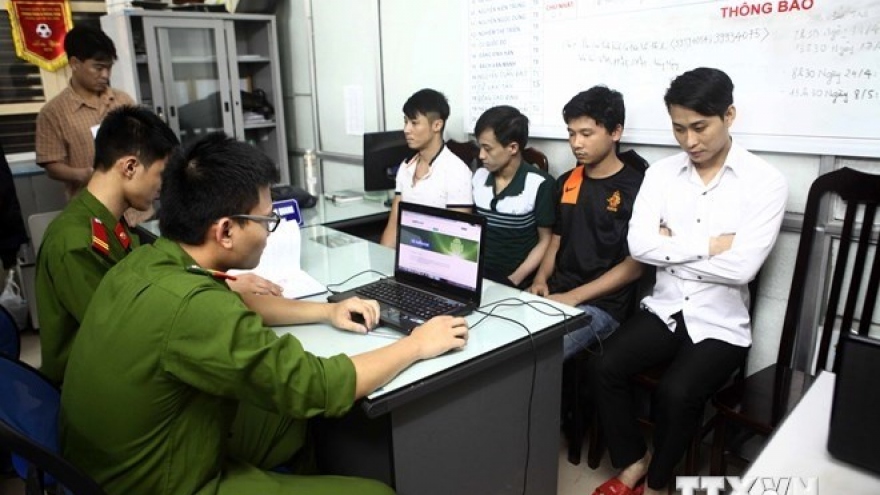Vietnam social media users face crime and fraud
In May, Tran Thien An from the southern province of Bac Lieu was sentenced to eight years in prison for raping a 12-year-old he met via the internet.
 |
Living in Ho Chi Minh City, the child, N, met An on social media in October 2016. At the end of the month, An asked N to visit his house in Bac Lieu province, where the two had sexual intercourse.
An’s crime is one of many cases of wrongdoing and fraud facilitated by social media. With 70% of the population having access to the internet and 53 million people on Facebook, Vietnam faces many challenges in ensuring people, especially children, are safe on the internet.
In 2013, social media users were enraged by a young mother in the central city of Da Nang, who took advantage of her son’s congenital heart defect to fraudulently raise money.
The mother, Nguyen Tran Hoai Tham, posted about her son’s condition on her Facebook account and asked for donations from social media users for his surgery. It was reported that only a quarter of the VND200 million (US$8,860) that Tham received was spent on the surgery. She used the remaining amount to buy expensive phones and tablets for herself.
Speaking at a cabinet meeting in Hanoi last month, Minister of Information and Communications Truong Minh Tuan said that the rise of false information that elicits hatred and violence and hurts the nation’s unity has rendered the negative effects of social media undeniable. But ultimately, the actions and claims of wrongdoers are more important than the mediums by which they are delivered, he said.
“Social media should be considered a tool, a road used by both travellers and thieves,” he said. “Their attitude is the heart of all problems.”
False, misleading information mostly appears on foreign social media platforms, Minister Tuan added. Because social media can seem distant from concrete reality, social media users think they have the freedom to say anything without taking responsibility for it, he said.
Vietnamese social media users are also threatened by cyber attacks.
They are among those with the lowest awareness of cyber risks in the world, said Deputy Prime Minister Vu Duc Dam.
“International surveys showed that while 60% of people in other countries are aware of the risks of being attacked by malicious software, only 11% of Vietnamese are,” he said.
Dr Dinh Thi Thuy Hang, Director of the Press Training Centre under the Vietnam Journalists Association, said that it is necessary to establish regulations on social media use and teach them to children.
“For example, ‘Do not use social media to spread gossip and cruel rumours about each other’,” she said at a conference on communication crises in social media in Hanoi last month. “Schools and families should make stronger efforts to educate young social media users on these matters."
To manage information on social media more effectively, the information ministry recently requested foreign social media companies comply with Vietnam’s regulations and remove false information that harms the country.
In particular, it has requested the video sharing website Youtube remove about 5,000 videos with inappropriate content, said Minister Truong Minh Tuan.
The ministry will revise its legal documents to ensure stricter measures against cyber fraudulence, he added. It will focus on promoting Vietnamese social media platforms in the coming time, he said.

